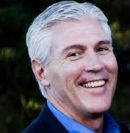As a college president, I have often argued that ideas have consequences. For good or for ill, ideas matter. People are unavoidably blessed or cursed by their guiding principles — by the import of their ideas.
In many ways, we inevitably do practice what we preach. “[That] thing a man does practically believe … the thing a man does practically lay to heart, and know for certain … is in all cases the primary thing for him, and creatively determines all the rest.” (Carlyle).
I often tend to lean toward waving a flag of danger and, thus, warning of bad ideas and the bondage and dysfunction they bring; of hedonism’s uncanny gift of deception and of the destructive consequences of what M. Scott Peck called the diabolical human mind.
Today, however, I would like to focus on the power of a good idea. Rather than bemoan those that are bad, I’d like to champion an idea that bore its fruit over 200 years ago on the streets of London. Its promoter was a young British Parliamentarian named William Wilberforce and here was his idea: God is God and we are not.
You see, Wilberforce believed that men were defined by God and not God by men. He challenged his culture for assuming it had the authority to define what was human and what was not. In the face of slavery as well as the exploitation of women and children, Wilberforce boldly and clearly said no individual had the right to define, or redefine, “a man” or delimit his or her moral worth and responsibility. Such things were God’s alone to judge.
For two decades, Wilberforce fought tirelessly in the British Parliament for his idea. He was beaten back time and again. He was ridiculed. He was accused of economic treason. He was insulted. He was ostracized. His political career suffered and was all but lost. His influence waned and his voice was muffled. But he held fast to his idea. He relentlessly pursued it, defended it, and promoted it. He believed in its power. He boldly declared that he would not be silenced. He confronted the “corruption … of human nature” endemic in the political system of his day and he called “vice and wickedness” by their true names. He refused to accept politically correct definitions of sin and contrasted the hubris of government with what he called the “humiliating language of true Christianity,” i.e. the call for personal repentance and moral responsibility.
Wilberforce believed passionately in his worldview. He was confident in it as the only solution to the corruption rampant in his land. He, however, did not advocate imposing his views with force. To the contrary, he believed in the power of persuasion and the example of personal integrity. He wrote that Christians should “boldly assert the cause of Christ in an age when so many who bear the name of Christian are ashamed of Him…” Thus, he made it clear that his ideas would only prevail if they were grounded in — and proven by — the lives of those who espoused them.
Wilberforce concluded (knowing that he could commend belief but not command it) by saying: “The national difficulties we face result from the decline of religion and morality among us. I must confess equally boldly that my own solid hopes for the well-being of my country depend, not so much on her navies and armies … as on the persuasion that she still contains many who love and obey the Gospel of Christ. I believe that their prayers may yet prevail.”
In the end, Wilberforce’s opponents were forced to concede the obvious: God defines a man and woman, and we do not. It was the victory of an idea, not one of political or military conquest (of “navies and armies”), but that of a good idea over a bad one. It was a victory of truth over lies; of freedom over slavery, of sanctification over sin.
Ideas do indeed matter, and in this case we see the power of an idea lived out in humility, balanced with integrity, and measured with grace can indeed change the world. In his example, Wilberforce leaves us with the hope that in the midst of a culture that arrogantly declares, “We are as God! We can redefine right and wrong, marriage and morality and even male and female,” the “prayers of many who love and obey the Gospel of Christ … may yet prevail.”
 Dr. Everett Piper is president of Oklahoma Wesleyan University in Bartlesville, Oklahoma.
Dr. Everett Piper is president of Oklahoma Wesleyan University in Bartlesville, Oklahoma.
The views expressed in opinion articles are solely those of the author and are not necessarily either shared or endorsed by Black Community News.
 Black Community News News and Commentary for Christians
Black Community News News and Commentary for Christians



